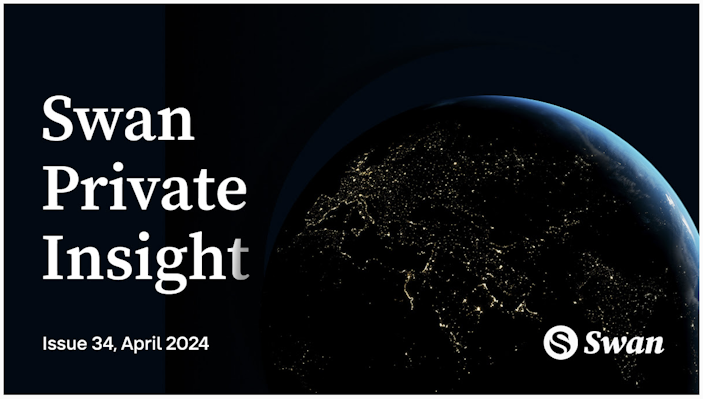Privacy, Executive Order 6102 & Bitcoin
Let’s keep pushing forward for the future we want to see, one in which both the price of Bitcoin and global freedom can go up together.

Since Bitcoin’s earliest days, many have feared a repeat of Executive Order 6102. This topic drove countless hours of debate on early Bitcoin forums. For those readers who do not respond with fear and trembling to the mere mention of the phrase, allow me to explain.
Executive Order 6102 ordered the confiscation of gold from all private citizens in an attempt to address the Great Depression, shore up the backing of the dollar, and then devalue it. It was the largest asset seizure from private citizens the United States has ever seen.
Could the government try to confiscate Bitcoin when it realizes Bitcoin may be a threat to its monetary supremacy? How would they try to do it? Would a registry of Bitcoin holders be constructed from KYC information gathered by Bitcoin exchanges?
What protections could Bitcoin offer against this tyranny? Surely, gold fell prey to such a draconian measure due to its lack of portability and concentration in large silos.
Have no fear! For I am here to tell you of the many reasons we shall not see a repeat of EO 6102, and where freedom-minded Bitcoiners should direct their watchful eyes instead.
First, we must set the stage for the precise conditions under which EO 6102 occurred in the first place.
Swan Private Insight Report #34
This essay report was initially sent to Swan Private clients on April 12th, 2024. Swan Private guides corporations and high-net-worth individuals globally toward building generational wealth with Bitcoin.
Benefits of Swan Private include:
- Dedicated account rep accessible by text, email, and phone
- Timely market updates (like this one)
- Exclusive monthly research report (Insight) with contributors like Lyn Alden
- Invitation-only live sessions with industry experts (webinars and in-person events)
- Hold Bitcoin directly in your Traditional or Roth IRA
- Access to Swan’s trusted Bitcoin experts for Q&A
Franklin Delano Roosevelt: Supreme Leader of America
FDR was elected President on November 8th, 1932. He took office on January 20th and on April 5th, he issued EO 6102.
Whoa man, that seems pretty fast, doesn’t it?
How long do you think it would take Biden or Trump to confiscate everyone’s Apple shares? Longer than 2 months?
If the speed at which one man was able to confiscate private wealth surprised you, my dear reader, I would not blame you!
You might wonder if Congress was planning to do this for months and FDR just signed off on it. But no, this was not the case.
Congress did not prepare this move, nor did they vote on it. It was purely decided and executed by FDR, Supreme Leader of America.
I refer to FDR in this manner to impress upon you that he had more in common with a dictator than with modern presidents. FDR wielded some of the most staggering executive authority this country has ever seen since its founding (Washington and Lincoln are the only other serious contenders).
It is notable that one can mount a viable critique of his authoritarian tendencies without even mentioning that he threw people into camps based solely on their ethnicity…

FDR reshaped American politics and the American system in profound ways that still influence the nature and structure of our country today.
In fact, the only thing that could halt his relentless push through our institutions was death itself (if it hadn’t we would have had to conclude that the man truly had the Mandate of Heaven).
FDR was the penultimate wartime president; his term straddled the great depression and WW2. He was the crisis president to end all crisis presidents, and was elected with the highest vote majority the country had yet seen.
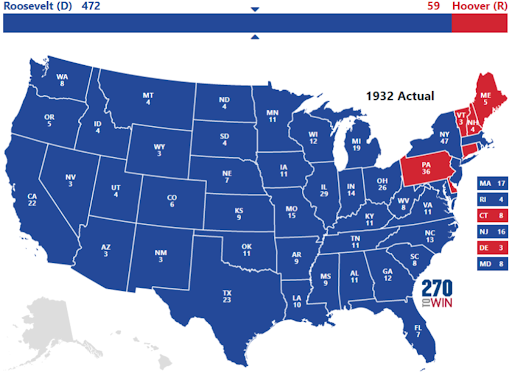
Can you imagine any presidential candidate getting elected with an electoral map remotely similar to this one today? Modern elections look nothing like this; the country is as divided as our government is.
When we look at the history of EO 6102 we must contend with the fact that the circumstances of FDRs reign are incredibly dissimilar to the government we currently have today.
Now, some readers might want to pause here to say:
“But Steven, you make good points, and are compelling and handsome, but doesn’t the COVID era completely contradict your thesis? Didn’t the government basically seize control during crisis times with unchecked authority?”
I disagree. While I have tremendous sympathy for those who had to navigate COVID in California and New York, I lived in Florida during COVID.
There was an approximately zero percent chance of a vaccine mandate being rolled out here, Florida never really shut down, and the only thing that changed was you saw masks in the grocery store. The Federal response to COVID stopped at state lines, and that alone paints a very different picture.
What COVID revealed, in my opinion, was not the sweeping crisis powers of the US bureaucracy, but instead the profound influence that the top 1% most neurotic and online segment of the population wields over social norms. What you saw was willing compliance by private citizens and companies, not forced top-down control by the government. If you want to see what that would look like — examine China under COVID.
So, we must return to the simple fact that the government of modern America is strikingly different to the government of FDR’s America.
Saying, “well the government confiscated everyone’s gold so they will do it again, ” is like saying “well, England and France fought many wars in the past so it’s only a matter of time before Peter McCormack leads a battalion across the English channel.”
Peter’s military prowess notwithstanding, the fundamental context and relationship between England and France, is so wildly different today from historical norms that the comparison simply isn’t very helpful.
Although, as they say, if you can lead a soccer team you can lead an army.
The United States Today: A Sclerotic Bureaucracy Overseeing Technocratic Acceleration
The United States today is very different from the time of our Supreme Leader’s reign. It is also historically anomalous due to the profound influence of widespread technological growth and the cannibalization of social mores via technocratic acceleration.
The role of the President today has very little in common with FDR’s sweeping executive power. Government power has become increasingly dispersed across the countless departments and bureaucratic committees that govern various aspects of it.
While this article was being written the DOJ shut down a notable Bitcoin privacy service and the FBI has been sending warnings about non-registered exchanges. Notice how it is the agencies?
We live in an era of political stalemates and roadblocks where it’s increasingly hard to get things done by the executive branch and congress. Regulation increasingly happens in backdoor, roundabout ways. Don’t believe me?
Recently the government tried to force Bitcoin miners to disclose their energy usage statistics and locations. They were swiftly rebuked by a lawsuit from Riot (great job, guys).
Now, let me ask you one question. Do you think FDR would have allowed a mere pesky lawsuit to impair his will? Absolutely not! In fact, when met with opposition to his New Deal, he tried to pack the courts to force his legislation through.
EO 6102 wasn’t legal and had no precedent in American governance! Our Supreme Leader did it anyway.

Let’s be clear: my point in making this comparison is to point out the staggering difference between the ability of FDR to act and the current ability of our own government to act and impose its will.
They are not the same, they are not even in the same zip code.
So which forces run the show today if it’s not centralized control from our highest governmental bodies? Increasingly, it is a sprawling US bureaucracy and the raw momentum of technological acceleration.
Technology drives our society forward, and governance stumbles along in its wake ineptly trying to manage the rapid pace of change.
Nations used to be a collection of largely similar people, who shared certain values. These people absolutely had disagreements, even passionate ones, over many issues; but there was a civic core they mostly shared.
This central character was essential to the nation, and it is fair to say that it is central to most definitions of what a nation was for most of human history.
I am not suggesting America has none of this central character today. However I think Americans disagree more on that core set of values than ever before.
Society is increasingly held together by economic forces, rather than social cohesion. America has increasingly optimized for laws and culture that prioritize what capital needs, rather than what gives vitality to humans.
This has both pros and cons. America is the most prosperous civilization we have ever seen, and the global hub for finance and capital. However, we have lost much of what makes a civilization a civilization.
Things like culture, values, connected purpose, and transcendent ideals.
Do we have much social consensus on shared values?
Do we have much social consensus on the culture we want?
Do we have much social consensus on what the purpose of our society is?
No, but who cares? let’s create some shareholder value baby!
The transformation of American society into its current form, a country driven rapidly forward by advances in technology, is another key difference between our world and FDR’s. Our politicians have seen, for decades, that technology and technologists have increasingly developed their own power centers outside of government.
The unspoken rule of American governance is to facilitate economic growth, which means technological growth at all costs. Whereas FDR was focused on remaking the social contract, our current politicians are just Sherpas of GDP. Most of them just want to get their slice of the pie and retire. Few want to rewrite the very terms of American society.
This profile of a politician is, at face value, much less likely to attempt something like EO 6102 and even less likely to amass the type of power needed to do such a thing.
In “The Revolt of the Public, ” Martin Gurri talks about how until the modern era every government around the world had a monopoly on information and its distribution. Suddenly, the internet comes along and busts that monopoly wide open. Governments struggle to control information today. Information now exists in a bacchanalia of orgiastic consumption via our smartphones.
This trend continues to redistribute the real places where power and control are, moving them farther away from the central government authority. Rapid technological change continues to move us to a more and more decentralized society (albeit not in the way most Bitcoiners want…). What, you don’t love the media companies controlling narratives instead of the executive office? I wonder why….
All of this comes together to say FDR’s world and our world are radically different and comparisons between the two are highly tenuous at best.
And the faster you believe technology will progress, the further we get from FDR’s world, and the further we get into this weird new future where everything is brand new and nothing matters (allegedly).
Finally, as a result of a weakening social order in the collapse of social systems (culture, religion, and even ethnic ties) we see a rise in the motivation of many in government to extract personal wealth from a privileged insider’s position. They are like vultures scavenging the corpse of our institutions — a corpse rich in technocapital.
I share this, not as a moral condemnation of these acts and individuals, but as a signpost to direct your attention once again to the difference between the era of FDR and today. Our officials have increasingly little skin in the game. Many simply want to get rich and powerful, and then leave government. FDR at least had titanic ambitions befitting an epoch defining leader.
Our current government lacks the structure, organization, ambition, and even perhaps the motivation to pull off an EO 6102.
Is Bitcoin Resistant in Any Way?
I’ve said a lot about how government has changed, and I’ve said little about Bitcoin. This is basically the opposite of how most Bitcoiners go about this dialogue. They pound their chests and shout to the heavens about how Bitcoin’s digital bearer asset nature makes it immune to this sort of attack.
Bitcoin is certainly much, much more seizure-resistant than gold, but alas, not immune. A large amount of Bitcoin exists in heavily regulated silos, and a large amount of Bitcoin is in the hands of those who would not take the appropriate actions at the time that such an order would be issued.
However, Bitcoin is different — unique, even!
Gold’s fatal flaw was its physical nature. This physicality made it cumbersome to store and inevitably led to its concentration in the hands of several large custodians. It became easy prey for our Supreme Leader.
Bitcoin, in contrast, can be moved with the click of a button. In today’s age, an EO 6102 would require months if not years of propaganda to shift public opinion. Thus, bitcoiners would have plenty of time to respond.
But even more than the well-trained ability of our freedom-loving brothers and sisters to click buttons in times of crisis, Bitcoin has an even more primary protection:
Americans fucking love it and own a lot of it.
If you add up all of the Bitcoin Americans own, all of the mining stocks, all of the private investment funds, the exchanges, the startup equity, and every other investment that has anything to do with Bitcoin on any level — you easily get a number over a trillion dollars.
Do you think any of our current crop of politicians want to try to confiscate a trillion dollars of private citizens’ assets?
Sure, they may fantasize about it in their dreams but in the words of bodybuilding legend Ronnie Coleman:
“Everybody wants to be a bodybuilder, but nobody wants to lift no heavy-ass weights.”
They simply do not want the actuality of what that would entail, especially the part where they have to drag Blackrock’s new cash cow from its cold dead hands.
So, this is all good news! I have hopefully put your mind at ease and convinced you that 6102: Part Two is not on the horizon. So, is everything all good then? Is hyperbitcoinization inevitable? Should we just kick our feet up and enjoy the eternal riches and….
Definitely not! There is another concern that I find much more realistic than 6102.
Failure via Success: Number Go Up, Freedom Go Down
I have long thought the more realistic threat was failure via number go up. What I mean is that the price of BTC goes to over $1 million per coin but very few actually own any actual BTC.
If I were the government and I was concerned about BTC, would I try to claw a trillion dollars of assets from private citizens or would I just simply approve a bunch of Spot ETFs and let Wall Street market the heck out of it?
Everyone is rich! Early holders are billionaires! People buy Bitcoin and make huge dollar profits! Everyone is happy! Everyone except those who hoped Bitcoin might do something more than dollar profits….
Sure, a dedicated group of hardliners would still hold actual bitcoin, but it would fail to realize its network potential and instead only see usage as a financial asset.
It’s much easier to buy everyone off via sick gainz, than to confiscate a trillion in assets.
So this is the threat that we should be monitoring closely. What can we do about it? What can we do to prevent this outcome?
Let’s be clear about a few points first
ETFs were inevitable, they were always going to happen
Some people need to own ETFs and that’s fine
Some people choose to buy the ETFs, and that is also okay
That being said, the way we prevent hyperETFization is by massively improving non-custodial or semi-custodial solutions to the point where it is easier or better to use these alternatives over ETFs. We can’t take our eye off the ball, we need huge UX improvements.
We also need reasons to own actual Bitcoin besides fear of the government. Sorry guys, this fear will not scale well.
We need something profitable you can do with actual coins and not with ETF shares. Financial incentives rule everything around me. There are many pathways to this, but it needs to be actually profitable, not just financial alchemy with tokens.
I believe the most effective way to get people to hold their own keys or to own Bitcoin directly is for there to be ways to generate profits via your Bitcoin directly on the network. Providing liquidity for lightning routing is one example of this which already exists. I am specifically not talking about “paying yield with tokens”, but actual on-chain services which people pay actual Bitcoin for.
The moment you can earn 6% a year with your actual Bitcoin, it’s easy to convince people to hold their keys instead of ETF shares. Until this is possible you have to rely on fears of government confiscation to scale direct ownership, and I simply believe this will not persuade 90% of the population in developed countries.
So in this sense, over-fixation on EO 6102 is actually an impediment to keeping our focus on the real risk, hyperETFization. The custodial Bitcoin future.
And this is a future which only became more likely as this piece was being written. Pressure continues to mount against privacy and self custody. Enforcement continues to come from bureaucratic agencies and corporations, not via the executive branch in a top down manner.
As such, we must focus on the precise style of attacks which these agencies and corporations can render against Bitcoin. They cannot do EO 6102, they can push people into the custodial, financialized, hyperETFization world.
This is the real risk.
Let me be clear, I don’t think this is what will happen. I don’t think we end up with this as the likely outcome, but the only reason it won’t happen is because we work together to build the alternative. Bitcoin is not inevitable in the sense of “doesn’t require human engagement and work”.
The only sense in which you can begin to say Bitcoin is inevitable is by saying “Bitcoin’s incentives will inevitably produce the engagement of humans required to get us where we need to go”.
I don’t know if that latter statement is true or not, but the first one certainly is not. What I do know is that Bitcoin is the sum total effort of everyone who has worked on it in any way, and Bitcoin’s future will be the sum total effort of everyone who works on it.
Let’s keep pushing forward for the future we want to see, one in which both the price of Bitcoin and global freedom can go up together.
Sign up to start saving Bitcoin
Buy automatically every day, week, or month, starting with as little as $10.
Steven is the Managing Director of Swan’s Private Client department with concierge services for HNWI interested in buying >$100k in Bitcoin. His mission is to make Bitcoin easy for investors in the US and internationally, and enabling Bitcoin purchases in IRA, 401k, and Trust accounts.
More from Swan Signal Blog
Thoughts on Bitcoin from the Swan team and friends.
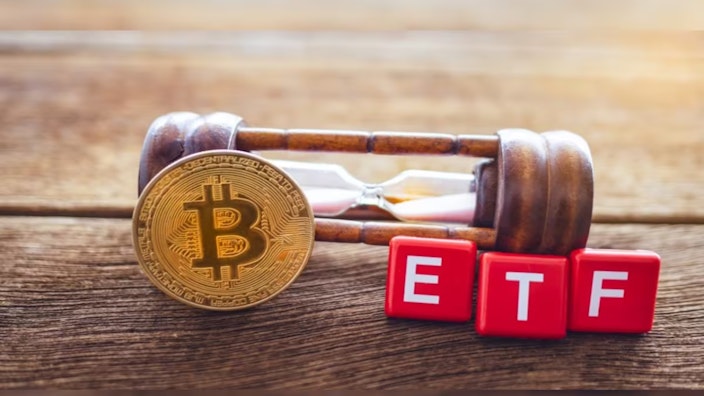

Best Bitcoin ETF Fees: Lowest to Highest (May 2024)

By Matt Ruby
In this guide, we analyze and present the top 10 Bitcoin ETFs with the lowest fees for cost-effective investing.
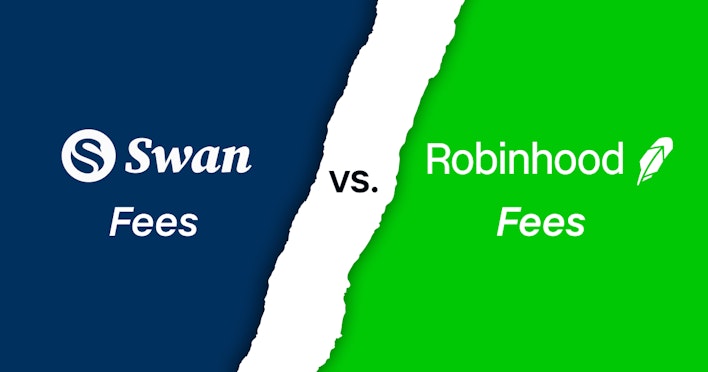

Why You Should Care About Robinhood Fees Right Now

By Drew
In this post we analyze and explain Robinhood’s hidden fees, how they make money despite not charging any trading fees and why Swan’s fee structure is among the most customer friendly in the industry.

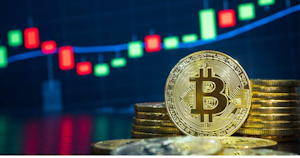
Bitcoin Price Prediction 2030 & 2040 (May 2024 Update)

By Drew
Max Keiser predicts Bitcoin to be worth $200K in 2024. Fidelity predicts one Bitcoin will be worth $1B in 2038. Hal Finney predicted $22M per Bitcoin by 2045. Let’s look into why in more detail…
